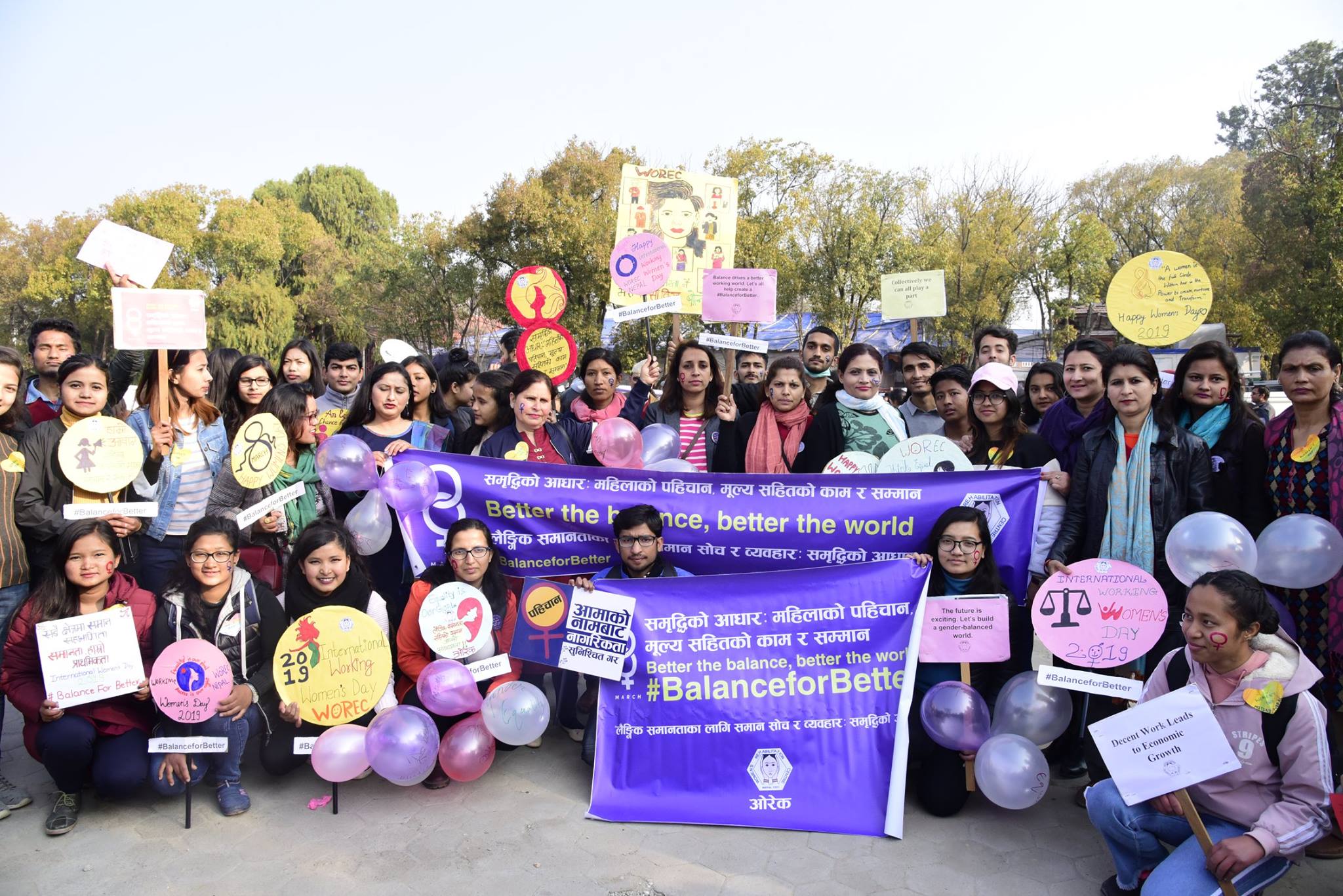Women's Rehabilitation Centre (WOREC) is a non-governmental organization working for the protection and promotion of human rights. Established in 1991, WOREC is one of the leading national organizations that works to prevent violence against women, its causes and consequences, and to ensure economic, social and cultural well-being of women as well as other marginalized groups by promoting their access to rights and social justice.
Women's Rehabilitation Centre (WOREC) is a non-governmental organization working for the protection and promotion of human rights. Established in 1991, WOREC is one of the leading national organizations that works to prevent violence against women, its causes and consequences, and to ensure economic, social and cultural well-being of women as well as other marginalized groups by promoting their access to rights and social justice. WOREC started her work with an objective to prevent trafficking of women and children and advocate for the rights of survivors. In course of work, with the realization that trafficking is one among various other outcomes of women rights violations, WOREC started to work from broader perspective for women's right without losing the focus against trafficking. WOREC is the first organization in the country to introduce concept on safe migration as a tool for prevention of trafficking, and now with learning and experiences from the ground has been broadened within organization's work frame including labor rights and right to mobility as key to prevent trafficking and slavery-like practices.
Being an organization guided by feminist values, WOREC believes that empowering women to control her body, sexuality and reproduction/production is a key to enable women to exercise her rights. To achieve this, WOREC has been working on women's sexual and reproductive rights since establishment. Initiating the concept of barefoot gynecologist based on 'Our Bodies, Ourselves', developing manuals to facilitate grassroots women to understand their body, body politics and outcomes have always been a major intervention area. WOREC has been successful to mainstream discussion on issues related to Uterine Prolapse and Obstetric Fistula as a repercussion of violation of women's right. Addressing women's life needs integrated, multi-sectoral and multi-cultural interventions, WOREC has been practicing integrated, programmatic approach in her work. Community-based women health and counseling centers, model farms based on bio-intensive farming concepts, engagement with women and other community groups for political participation and equal representations are some of the exemplary works of WOREC. In the last 30 years of her work, WOREC has been successful to establish survivors-led powerful organizations, networks, that plays the role of catalyst to change different national policies such as policy against trafficking, national policy to address uterine prolapse, law to facilitate safe abortion, domestic violence law, integrated pest management, organic farming, property right and several other progressive policies on women's right.
Vision:
A society where feminist aspirations are met.
(WOREC considers achieving feminist aspirations as the situation where social, political and economic equality is ensured)
Mission:
Promote women's human rights and end all forms of structural discriminations through collective actions.
Strategically, to achieve above vision and to materialize mission, WOREC sets following objectives and strategic goals for the period of 2023-2027:
Strong women’s right movement lead by young women leaders for women’s right to bodily integrity, right to work and workers’ rights along with identity as equal citizen.
